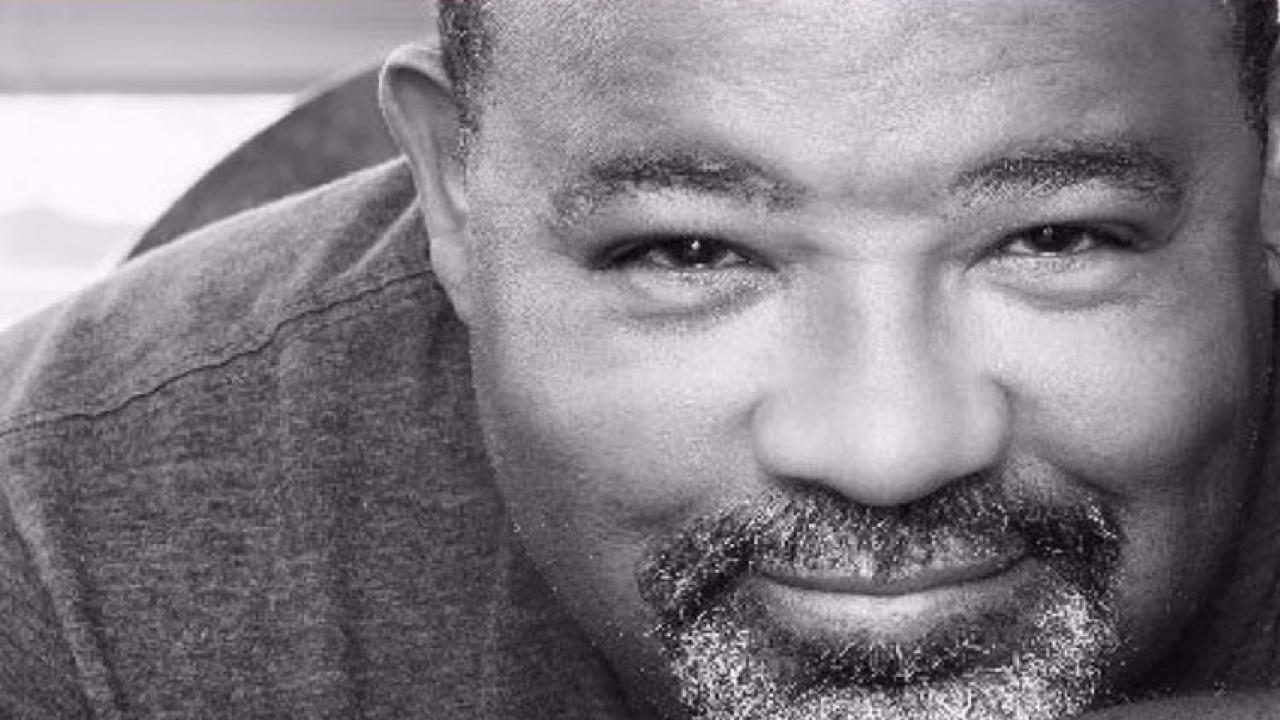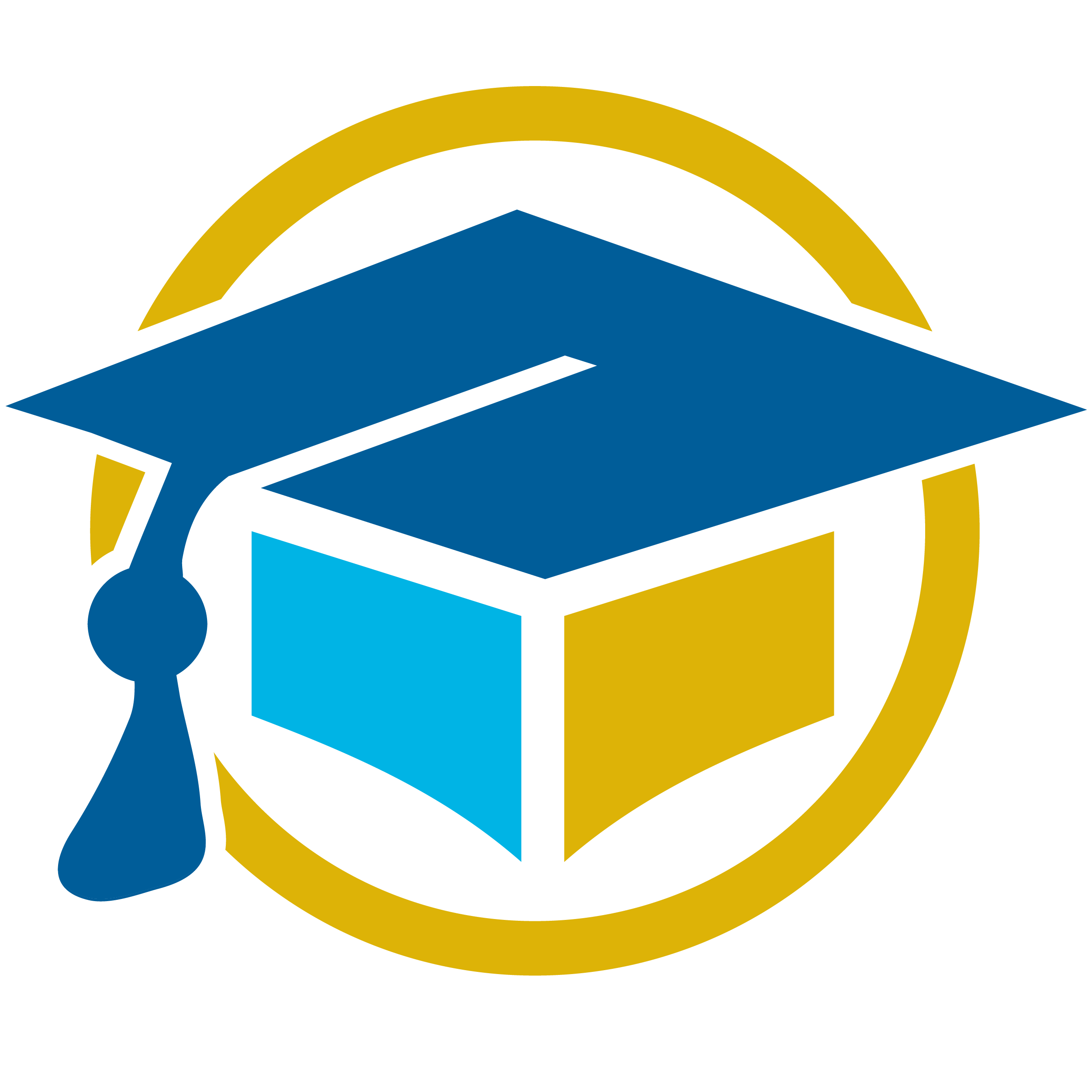
Milmon Harrison
FROM THE principal’s office to a successful dance career to a seven-year college journey, Milmon Harrison’s path to being a professor was full of the unexpected. A New Orleans native, he grew up in Hunter’s Point and the Haight-Ashbury District of San Francisco before moving to Stockton and attending middle and high school in Lodi. “That I would end up being a professor is so weird to me because even though I was a smart kid, I didn’t always do well in school. I was easily bored and would always talk to my friends. There were a few years it seems like I spent the whole year in the principal’s office.”
In high school, Harrison ran track and ran hurdles – which is how, at age 16, he discovered ballet as a way to train off-season. Dance became his passion, and after graduating high school and briefly attending community college, he returned to San Francisco and his career took off: he danced in a tv commercial and performed in LA, New York, and Munich. And then, right after dancing in the 1984 Olympics, just before getting a callback for a Broadway show, he tore the cartilage in his leg and his dance career was over.
College and Family Expectations
Harrison was a professional dancer before his college career, and appears in this 1983 tv ad.
Harrison had always known he would go to college someday, and his injury was his sign that it was time. “I didn’t intend to get a PhD. I wanted to get a bachelor’s degree, work for the State, and have job security. That’s what you go to college for when you have a working class background.” Harrison’s father had an 11th grade education, and his mother had not attended college because she was expected to become a housewife – the norm where his parents were from. At the same time, “I knew I was expected to do something, to be something. My parents wanted me to have job security and to be something.”
Working, Studying, and “The Intervention”
He started out at UC Davis, but soon ran out of money and left to work at the Safeway plant. At age 25 started attending Sacramento City College. He had a long walk between the college and his home in downtown Sacramento, and remembers saving his only dollar and not eating anything so he could ride the bus home at the end of the day.
And yet, he says, “The first time I ever got straight A’s was when I had a full-time job and I was paying to go to college myself. I had to be at work from 4 am to 1pm and from there I’d go to class. And I realized that I really wanted to be there. I loved learning. I couldn’t wait to get to school every day.
“I never imagined being a professor, until one particular moment at Sacramento Community College. I had this sociology teacher who called me to her office – and I thought oh my God, what have I done? But she asked me, ‘Have you ever thought about doing this?’
‘Doing what?’
‘Becoming a professor. Because you are always so engaged and interested and you do your reading and you obviously like the subject. Do you know how you would become a professor?
‘No.
“She explained that when I transferred back to Davis I should get involved with research, declare sociology as a major, and start planning to go to graduate school.
“I always speak about that as ‘the intervention.’ It continues to shape my every aspect of my own work with and on behalf of students to this very day.”
Returning to UC Davis
When the Safeway plant moved to Tracy, Harrison was offered a good salary to go with them. As tempting as it was, he turned it down because “the next time a factory shut down and moved, I wanted to have a degree.” He used his severance pay to return to UC Davis and finish.
This time he went straight through, and graduated with highest honors and a citation from the sociology department. “I was the commencement speaker. There are still plaques on this campus with my name on them. And although I went on to get a Master’s and a PhD, my graduation from Davis, which had taken me 7 years from start to finish, was my proudest moment.”
Advice for First-Gen Students
Open your mind: Realize that your vision of who you are and what you can be will change, expand, and you have to be open to that expansion, and you have to go with things and try them out. Harrison’s injury had given him an early interest in becoming a physical therapist, and he did an internship at the UC Davis Medical Center. And although “it turns out I don’t like hospitals,” the internship allowed him to make an informed decision about his future. And his brother started out bound for medical school, but eventually chose to follow his passion and major in Italian. Now he is the Director of New York Programs and Membership for the Academy of Motion Picture Arts and Sciences, the organization probably best known for the “Oscars.”
Get connected: What a place this is – a big, giant place. You have to make it small by being connected with people who can talk to you and answer your questions and mentor you and support you. Get used to asking the question – “What’s available for me?” Harrison knew the MURALS program through the transfer agreement process. Even though he wasn’t eligible in his first year, he got on someone’s radar and did the program as a senior. Years later he ended up being the director of that program for 11 years.
Advocate for yourself: This is a really big, complex, intimidating system. At UC Davis I learned to navigate a complex bureaucratic system. My first time here I had to leave suddenly, before the quarter was over, because I ran out of money. I thought that if you don’t take the final you automatically get an incomplete – wrong! You get an F. So when I came back to UC Davis there were 2 F’s on my transcript. I went to an L&S advisor and made the case for a retroactive withdrawal (plus I had kept all my supporting documentation), and my GPA went up to an A-. So I learned to advocate for myself.
